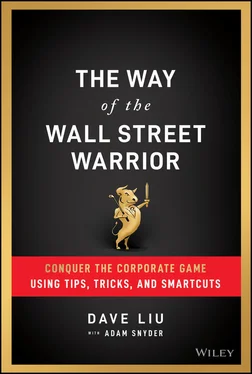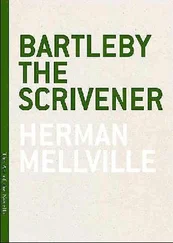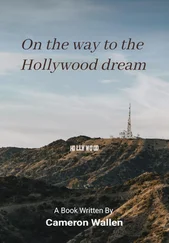This next round may start on Friday with a limo ride from the airport to your hotel. The next morning, dozens of impeccably dressed candidates show up at headquarters for what on Wall Street is called sell day , or Super Saturday . Each candidate is assigned to a particular room where your first interrogator is waiting. After ten minutes or so, you'll rotate to another interview, each time getting grilled to see what you know, but equally important, to see if they know you . Remember, it's mostly about a cultural fit. You may get a case study or two, but unless you made up those Medals of Freedom on your resume, it's all about sizing you up using—yup, you guessed it—the Cleveland Airport Test.
Each candidate might endure up to eight or nine separate interviews, often concluding with the person who interviewed you on campus playing the good cop: “Hey, Dave, good to see you again. How'd it go today? What're you thinking? Do you have any questions for me ?” This is another opportunity to shine because you've come prepared with astute, brilliant questions they've never been asked before. There are lots of ideas you can glean from books, but most of them are terrible. Never, ever use these:
“I spoke to I-Forgot-Her-Name-Because-I-Was-Too-Dumb-to-Ask-for-Her-Business-Card and she mentioned a Deal-I-Can't-Remember-Even-Though-We-Just-Spoke-about-It-Two-Hours-Ago. Can you tell me more?” There are multiple variations of this classic question, and they all drive me nuts. If you can't remember details like this, how am I going to explain to you the 50 finance scenarios I want you to run for the client in 24 hours?
“This place is pretty laid back. What do you do for fun?” Work. Next question?
“I don't have any questions.” Seriously? Unless you wear the Infinity Gauntlet and zapped your unimaginative ass into the future, how could you possibly have no more questions after spending a total of 14 hours with us? That's one workday on Wall Street!
I've also discovered some that are insightful, specific, and memorable. A few examples:
“I liked meeting Mr. Big Managing Director. He told me how he got his start after graduating from the University of Basket Weaving. How did you get your start?” If you haven't already asked this one, it's an oldie but goodie. It shows you were listening, and it gives the interviewer an opportunity to brag about how they walked through a hailstorm, barefoot, and stood in the arctic for hours to get a job. Nothing strokes an ego better than listening to them wax on about how awesome they were.
“I'm very curious about this specific deal that the firm completed. It looked like you maxed the leverage and created a holdco structure to minimize the equity check. Can you tell me more about how you syndicated that deal?” Very nice! Shows you won't need much training from me and that I'll make that afternoon tee time if I hire you. Unless you spilled hot coffee on your groin, I'd hire you now, and even then, I've spilled hot coffee in my nether regions and if you've lived to tell about it, you're the perfect underling for me.
“What will it take to get hired here?” I like it! Aggressive but consistent with the “Don't Ask, Don't Get” school of begging.
So come prepared with savvy questions. Sreene Ranganathan, a member of Facebook's Corporate Development team and former Jefferies banker, put it succinctly when he said, “I hate it when people don't do at least a minimum amount of homework. I mean how much friggin’ work does it take to look me up online and find out one or two interesting things about me? It shows me that I'm not just one of thousands of bankers and firms you're meeting with.” Nowadays, given how easy it is to stalk someone online, if you don't do it, it shows you're really not that interested.
Being the interviewer is really quite mindless because every candidate has the same answers to the same questions. So try to stand out, either because you're not wearing socks (this strategy is risky), your last name is Musk (or even Elon), or you've done your recon and can recite every deal the firm completed. I once had a candidate who read every interview I'd given in the Wall Street Journal and watched every presentation I'd delivered at industry confabs. That showed me a real interest in the industry, my firm, and, most important, me. In an ocean of candidates just looking for a safe port in the storm, nothing differentiates a candidate like a real, genuine interest in finding the right ship.
So how exactly might you come off as unique? By providing one-of-a-kind answers (in a gregarious way 1 ) to predictable questions. Here are some Q&As that should help get those gears turning:
What's your biggest weakness?Good answers: Almost any answer that doesn't relate to the job is good. For example:“I care about people too much.”“I love animals more than some people.”“I get very emotional about hunger and homelessness.”Turn any weakness into a strength. Here are a few others:“I'm obsessive.” Generally not great with boyfriends or girlfriends (see the film Fatal Attraction), but it can be a superpower if harnessed, particularly if proofing numbers and fonts is your bag.“I'm always pleasing people.” Again, not perfect if you're in Fifty Shades of Grey, but senior managers and bankers secretly love this. We all want loyal employees who will go the extra mile, and there's nothing like someone who's motivated not just by money, but by an innate drive to satisfy our every desire!“I love the weeds; I get lost in them.” Perfect because someone needs to check the work. It sure won't be me. I paid my dues and I'm done reviewing numbers and fonts that no client will ever check because they'll assume that we did!Terrible answers:Anything that could be translated in your interviewer's mind that you would not be a good employee and would be clearly bad for the job. Examples would be sloppiness, tardiness, and lack of enthusiasm. Tread carefully.Anything that presumes you're too good for the job you're applying for. In other words, don't overstep your bounds, and don't make it seem like you think you should have your interviewer's job.
For extra credit: What I look for most in a candidate is self-awareness. There's something called the self-enhancing transmission bias, whereby people share their successes more than their failures. This can lead to a false perception of reality and the inability to assess situations accurately. People with big blind spots are a recipe for future disaster. So if you take too long to answer when I ask you about your biggest weakness, that makes me think you're probably a narcissist, a sociopath, or both. So make sure you know your weaknesses (or at least have good answers), and don't hesitate before answering. If you don't have any weaknesses, Mazel Tov . Be sure to send me your name and address so I can refund the money you spent on this book and address it to your real name: Jesus Christ.
Why do you want this job?Everyone knows the only honest answer to this question, but no one wants to hear it: “Moolah, dinero, buckeroos, Benjamins, cashola.” Stay away from that answer because it sends the signal that you're just a mercenary jerk. Instead, do your homework and respond with something that specifically relates to the company, such as the following:“Because of the culture.” I know you're thinking that's a lame answer, but I will tell you that this is the most important thing in choosing a place to work. In most jobs, you'll be with your coworkers more than anyone in your life—that includes your drinking buddies who bum off your food. So even though you think you're an adult, you're still growing, and just like how peer groups affect teens more than anything else, 2 your coworkers will shape the professional you'll become. But just so you don't sound like a complete suck-up, make sure you have examples of how their culture differs.Compensation, promotion, and client practices are all good fodder. And better yet, if the firm has been a great feeder into other careers like nonprofits or politics, that works too.“Because of the deals you've done this quarter.” Make it obvious you've studied their deals, products, and projects. Better yet, make it clear that you would early-decision them in a heartbeat like you did your college admissions.
Читать дальше












